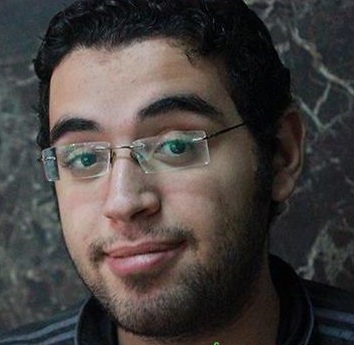
A lawsuit to halt a Ministry of Interior (MOI) effort to acquire software to monitor social media has been filed by a coalition of rights groups and concerned citizens. A statement released Thursday by the Association for Freedom of Thought and Expression announced the groups are filing the lawsuit at an Administrative Court.
The coalition, including ten prominent rights groups, filed the lawsuit on 17 June, hoping to prevent the MOI from “unlawful and unconstitutional conduct”.
“Such total surveillance does not seek legal warrants and constitutes a violation of an entire array of inalienable public rights and freedoms guaranteed by the constitution of Egypt, including the rights to freedom of expression, freedom of information, privacy, and security,” the statement warns.
The ministry’s plans to monitor the web was leaked and published in privately-owned newspaper Al-Watan. They aim to ‘monitor, list, analyze, execute, support, confront, and refute’ a number of ‘destructive ideas’, which include blasphemy and skepticism in religions and regional, religious, racial, and class divisions. The ministry also plans to monitor the spreading of rumours, intentional twisting of facts, spreading hoaxes and claims of miracles among other items.
The groups said this kind of software threatens the privacy of millions, and violates public freedoms. They said this was undertaken by “continuously searching and cataloguing social interactions on social networks, a very important part of the public sphere today in any free and democratic society.”
The proposed monitoring software also stands in opposition to Article 57 of the 2013 Constitution which states that private life may not be infringed upon.
“Electronic correspondence, telephone calls, and other forms of communication are inviolable, their confidentiality is guaranteed and they may only be confiscated, examined or monitored by causal judicial order, for a limited period of time, and in cases specified by the law,” the article states. It adds that “the state shall protect the rights of citizens to use all forms of public means of communication, which may not be arbitrarily disrupted, stopped or withheld from citizens, as regulated by the law. “
The statement noted this departure from the Constitution, acknowledging that “Privacy in the public sphere is necessary for a free and stable political life. Assaulting it is a sign of totalitarianism.”
The statement added: “The Ministry of Interior should be first to abide by the law, which it is mandated to enforce, instead of violating it for the sake of vague things like… sarcasm”.
The statement concluded with the organisations calling “all whose rights are violated by social media monitoring to attend the first session in the Administrative Court and to join the lawsuit to protect their basic rights of privacy and freedom of expression.”
International human rights organization Amnesty International (AI) also condemned the Ministry’s plans to monitor social media. In statement released earlier this month, the group warned that such programmes would “deal a devastating blow to the rights to privacy and freedom of expression in the country”.
“The plans by the Egyptian authorities to indiscriminately monitor social media a few months after the adoption of a new constitution guaranteeing the right to privacy shows the little regard they have for human rights or the rule of law,” said Hassiba Hadj Sahraoui, Middle East and North Africa Deputy Director of AI, “The plans also spark serious fears that systematic monitoring of social media networks will be used by the authorities to further clamp down on the slightest sign of dissent.”
Groups participating in the lawsuit include the Arab Digital Expression Foundation, the Egyptian Initiative for Personal Rights, the Hisham Mubarak Law Centre, and the Arab Network for Human Rights Information.



